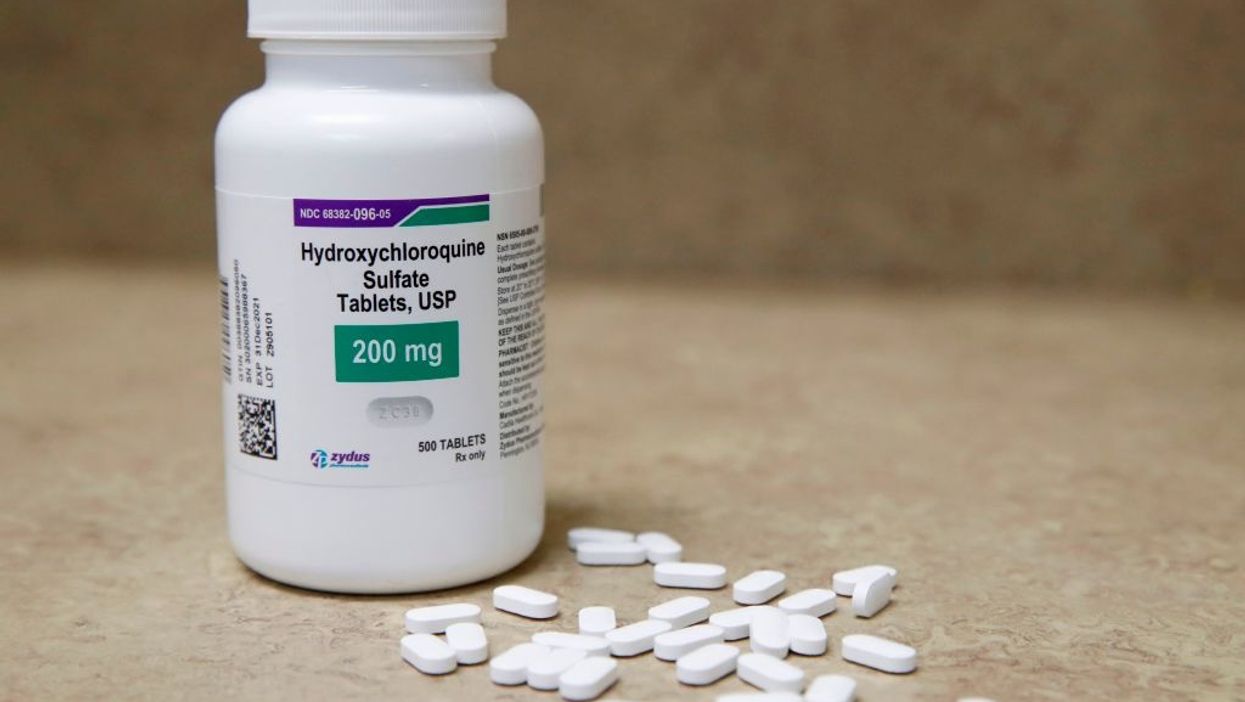
Photo by GEORGE FREY/AFP via Getty Images

'What differentiates this study is that patients were diagnosed very early with COVID-19 in an outpatient setting, and only high-risk patients were treated early on'
A peer-reviewed study analyzing the effectiveness of a triple drug cocktail including hydroxychloroquine in treating COVID-19 patients found that the treatment was effective and that it significantly reduced hospitalization and mortality rates for those in the treatment group.
The study, authored by the controversial Dr. Vladimir Zelenko in partnership with two German doctors, was accepted for peer-review and will be published in the December issue of the International Journal of Antimicrobial Agents. An online-only version of the study was published Oct. 26.
Dr. Zelenko and team, Drs. Roland Derwand and Martin Scholz, sought to describe the outcomes of high-risk patients with laboratory-confirmed cases of COVID-19 who received early treatment with zinc, low-dose hydroxychloroquine, and azithromycin. A total of 141 diagnosed COVID-19 patients were prescribed the triple treatment over a five-day period. They were compared with a control group of 377 confirmed COVID-19 patients who did not receive the treatment.
The study found that treated patients were 84% less likely to be hospitalized than untreated ones. Of 141 treated patients, four were hospitalized, which was significantly fewer than 58 of 377 untreated patients who were sent to the hospital. Additionally, the mortality rate for treated patients was lower. Only one patient in the treatment group died versus 13 patients in the untreated group. The patient who died had a history of cancer and only took one daily dose of the triple therapy before hospital admission.
The anti-malaria drug hydroxychloroquine has been the subject of intense public debate after President Donald Trump championed it as a potential "game changer" in March just after the onset of the pandemic. Earlier studies conducted in April and May found that the drug had no positive impact on patients. Another study published in Lancet claimed that the drug could be dangerous for some patients, but was later retracted by its authors. A more recent study published in November found patients treated with hydroxychloroquine showed no signs of significant improvement in "clinical status" compared with those given a placebo.
Zelenko and his co-authors claim that their research differentiates itself from other studies that have shown mixed or negative results for hydroxychloroquine by focusing on outpatients treated at an early stage of the disease.
"All studies that used HCQ with rather contradictory results were in hospitalized and often sicker patients," the study notes. Additionally, this study focuses on using hydroxychloroquine in combination with zinc and azithromycin, where other studies may have analyzed the effectiveness of hydroxychloroquine by itself.
"What differentiates this study is that patients were diagnosed very early with COVID-19 in an outpatient setting, and only high-risk patients were treated early on," Derwand said in a news release about the study.
"It's unfortunate that much of the media coverage surrounding hydroxychloroquine has been negative. These three medications are affordable, available in pill form, and work in synergy against COVID-19," Zelenko said. "Hydroxychloroquine's main role is to allow zinc to enter the cell and inhibit the virus' reproduction. And azithromycin prevents secondary bacterial infection in the lungs and reduces the risk of pulmonary complications."
"This is the first study with COVID-19 outpatients that shows how a simple-to-perform outpatient risk stratification allows for rapid treatment decisions shortly after onset of symptoms," Scholz added. "The well-tolerated 5-day triple therapy resulted in a significantly lower hospitalization rate and less fatalities with no reported cardiac side effects compared with relevant public reference data of untreated patients. The magnitude of the results can substantially elevate the relevance of early use, low-dose hydroxychloroquine, especially in combination with zinc. This data can be used to inform ongoing pandemic response policies as well as future clinical trials."